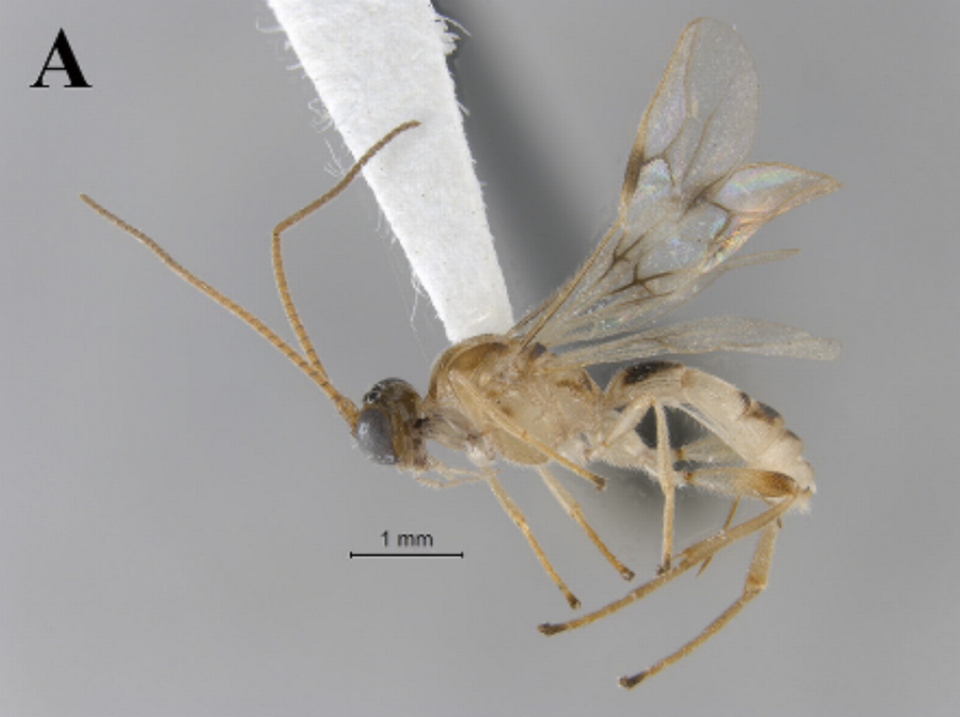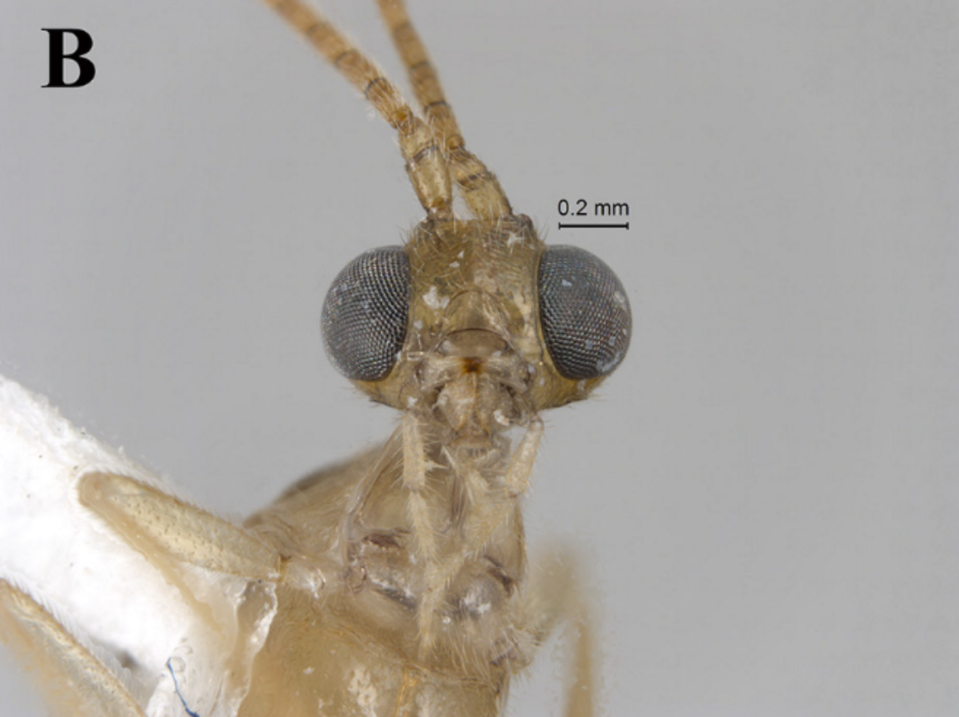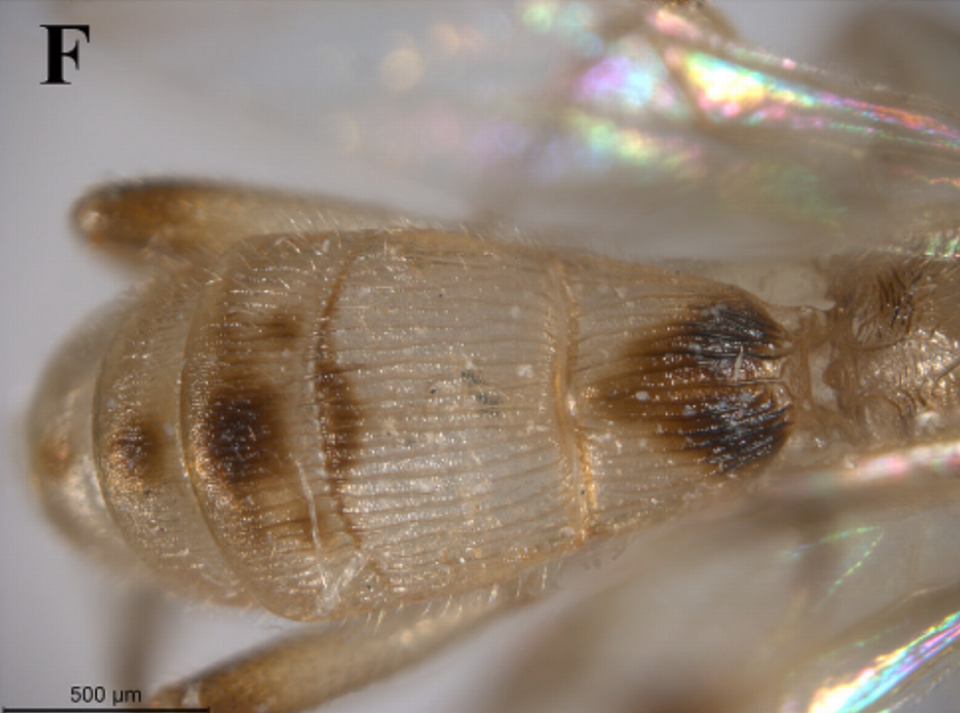Winged creature with ‘heart-shaped’ spot captured in forest trap. It’s a new species
Researchers discovered a brand new species of wasp in Mexico that wears its heart on its sleeve. Well, sort of.
The lovebug has a distinguishable “heart-shaped patch” on its back, according to a study published on Jan. 5 in the European Journal of Taxonomy.
The species was found in the tropical, dry forests of Jalisco, a southwestern Mexican state located on the Pacific coast.


During fieldwork carried out between 2009 and 2014, specimens were captured with a light trap and preserved in alcohol for further analysis, researchers said.
DNA analysis revealed the specimens belonged to the genus Triraphis, a family of parasitic wasps, which currently comprises over 70 species, including four that are found in Mexico.
Because of its characteristic brown “heart-shaped” spot, the new species was given the name Kardia, from the Greek word for heart.

Measuring only about a fifth of an inch in length, the wasp is distinguished by its yellow body and silverish eyes. It also has two long antennae and translucent wings, photos show.
It was found alongside three other new species of Triraphis wasp, doubling the total number of known species in the genus known to Mexico.
Wasps’ role in ecosystems
Wasps, which predate dinosaurs, are extremely abundant with over 150,000 species known worldwide, according to the book “Wasps of the World.” Most are parasites that eat other insects.
Though they’re considered pests, they perform a necessary function of maintaining an ecological balance, according to the Natural History Museum. Without them, the world could be overwhelmed by other types of insects, including spiders.
“Wasps are understudied relative to other insects like bees, so we are only now starting to properly understand the value and importance of their ecosystem services,” University College London researchers wrote in a 2021 study.
That study found many species of wasp are declining in population as a result of habitat loss and climate change.
“There is urgent need to address their conservation and ensure that habitats continue to benefit from the far-reaching ecosystem services that wasps provide,” University College London researchers wrote.
Elusive creature behind the ‘yeti legend’ spotted in India for the first time. See it
‘Unusual’ eyeless creature discovered in deep-sea volcanic environment, study says
Park rangers find baby elephant alone and trapped in mud. Then came reunion with mom


